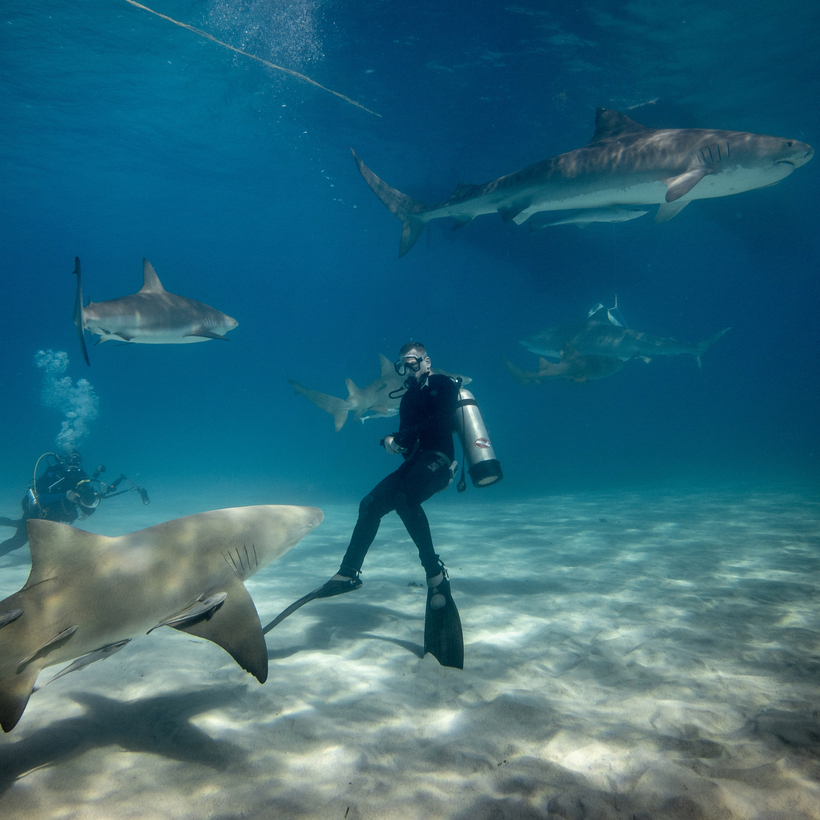They’d bunked down in their camp beds without a worry—a group of eight men, on an adventure trip to the Vietnamese jungle. Their guides had mentioned something about guerrilla activity in passing, showing them a few old news reports, but told them not to be concerned; those threats had mostly passed, they said.
It was startling, then, to be woke at dawn by the sound of explosions and gunfire, and chopper blades whirring as two copters landed in the clearing by their camp. Two dozen or so men appeared from the thickets and bundled the group inside them, whisking them away to what seemed like a prison camp somewhere nearby.

It was only the heroic efforts of one man, the one who’d invited his friends along for the trip, that resulted in their breaking free from their kidnappers four or five hours later.
The response from those terrorists to this jailbreak was unexpected, though. They didn’t brandish their AK-47s; instead they broke out into applause.
“That’s when the group realized there had been a film team there the whole time,” says Jimmy Carroll, of luxury-travel agency Pelorus. In fact, it was Carroll and his team who’d ginned up the entire scenario on the instructions of that have-a-go hero. He wanted to surprise—and thrill—his friends with a trip that went one better than a luxury buyout or a yacht charter (and showcase his bravado in the process).
Indeed, Carroll and co. had handled everything from faking Wikipedia entries related to the unrest to hiring those rubber-bullet-firing separatists.
Their client was one of a growing niche of the world’s wealthiest, who are shunning simple five-star luxury and instead opting for high-octane adventures more like a multi-millionaire’s answer to a murder-mystery weekend—call these adrenaline-chasing 1-percenters “thrillionaires.”
They’re paying firms such as Pelorus to surprise, and challenge, them on jaunts that combine reality-show-style feats with V.I.P. IRL versions of Westworld (well, without the murderous robots). VistaJet’s new Surprise Reunion program gives globe-spanning families the opportunity to convene in a destination they discover only on arrival. There are the shock-and-awwww honeymoons planned by Blind Experiences, and Mystery Cruises from river specialist Uniworld, which organizes holidays along the Danube, Ganges, Mekong, and more.

There’s such demand for trips like these that Pelorus established a division to handle them, from which Jimmy Carroll oversees the operation of what’s known as “the Game”—much like the 1997 Michael Douglas–Sean Penn thriller of the same name. Such vacations cost a minimum of $75,000, he says, though most run to six figures or more. Their appeal to the ultra-wealthy is simple.
“We like to be pushed in the modern world, and there’s a bit of one-upmanship too,” Carroll says. “As the world has been massively uncovered, it’s gotten smaller, so the new form of exploration is how you react in a different environment or scenario.”
The Game’s team is currently creating a custom, Cold War–reviving getaway for one client.
“We’ve got live ranges, Special Forces killing houses, and honey traps,” Carroll says of the Eastern Europe–based trip.
Black Tomato’s Get Lost program charges at least $15,000 per person for its immersion in extreme confusion. Rob Murray-John is the firm’s head of operations and has steered such trips since the Get Lost program’s launch, five years ago. He stresses that their popularity is accelerating now: 5 of the 20 or so custom Get Lost programs they’ve executed have taken place this year.

“The ethos is you’re literally being dropped in the middle of nowhere, and you fend for yourself. At the most extreme, you might not even know the country you’re going to until you arrive,” Murray-John says, noting that partners and friends can collude to coordinate visas and vaccinations in this instance. “Everyone says, ‘I’m so well traveled, but I just want to do something different.’”
Typically, the Get Lost program lasts for a week or so, and includes some prep work and training in situ, followed by a few days of adventure solo—under the watchful but distant eye of a guide or two. It’s capped with a bout of five-star R&R as a reward.
A typical Get Lost client is the high-powered corporate executive who hired Murray-John to challenge her in every way: she was whisked to the Mongolian steppes, where she rode horses and dirt bikes, kayaked down rivers, and even lived with a local family, helping them as they moved from winter to summer pastures.
“Everyone says, ‘I’m so well traveled, but I just want to do something different.’”
Nothing compares, though, to the trips organized by Based on a True Story (BOATS), a firm owned and run by Niel Fox. Fox rarely grants interviews, and the firm is determinedly discreet. He was a pioneer in this sector, first planning such Indiana Jones–meets–The Mole–type trips for his boss, a Russian oligarch, almost 20 years ago; soon after, he left his employ to set up BOATS.

No two trips planned by Fox are alike, and each of them combines storytelling—hence the name—with mystery, adventure, and puzzles. A prime example of its approach was the quest-like honeymoon recently commissioned by one wealthy couple in which the journey was inspired by an ancient legend: in the 13th century, an emperor cast nine jewels around the world, each an embodiment of an aspect of life, to avoid their falling into the hands of the advancing Mogul hordes.
BOATS arranged for them to hopscotch by private plane around Asia and America, collecting nine Avengers-like “Infinity Stones.” The journey climaxed in a super-yacht charter to a deserted island in the Caribbean, where they found a treasure chest containing the last stone. It unlocked a box they’d received at the trip’s outset, containing a final keepsake.

Fox has also transported a family to ancient Greece via a series of vignettes in the Peloponnese, where actors played figures such as Apollo and Medusa, enlisting the children to solve puzzles and determine their next port of call. It was inspired, per the family, by the need to say farewell to their previous yacht and christen their new vessel.
“What sets my business apart from what other people do is that we deal in surprises more than anything else. We create a narrative that’s theirs alone,” he tells Air Mail, of trips that cost at least $250,000 but usually top $1 million or more. “Just step into our world, relax, and it’ll happen.”
To hear Mark Ellwood reveal more about his story, listen to him on AIR MAIL’s Morning Meeting podcast
As he says, Mark Ellwood focuses on “froth in all its forms.” He has written for AIR MAIL about the turmoil inside Moda Operandi. He is also a columnist for Bloomberg Pursuits, the creator and a co-host of Bloomberg’s Travel Genius podcast, and the author of Bargain Fever: How to Shop in a Discounted World


